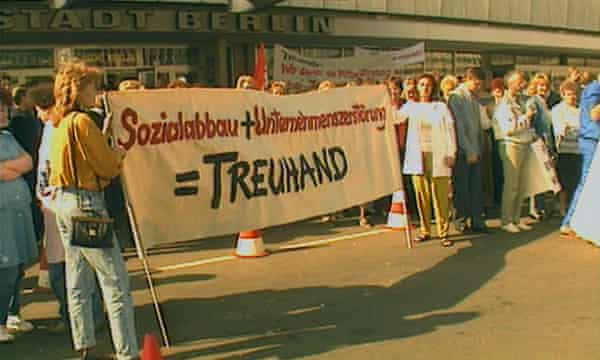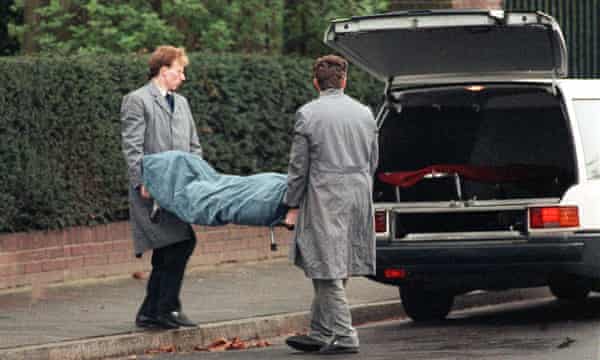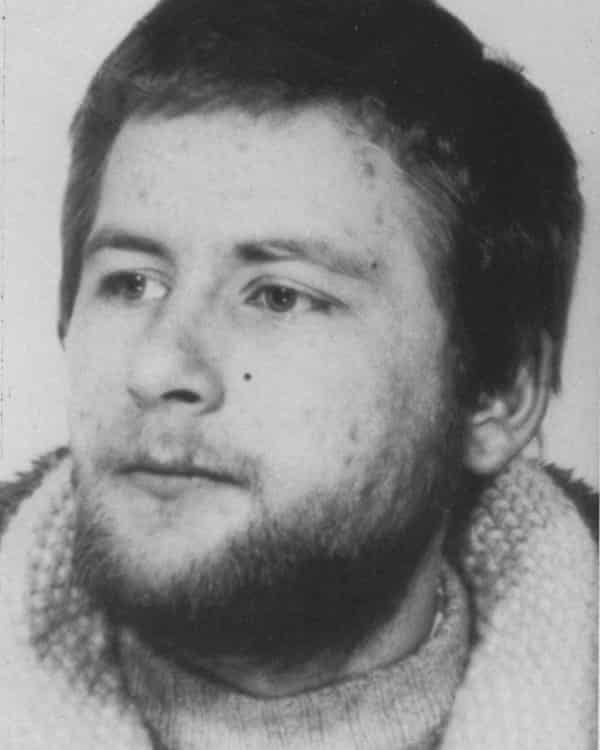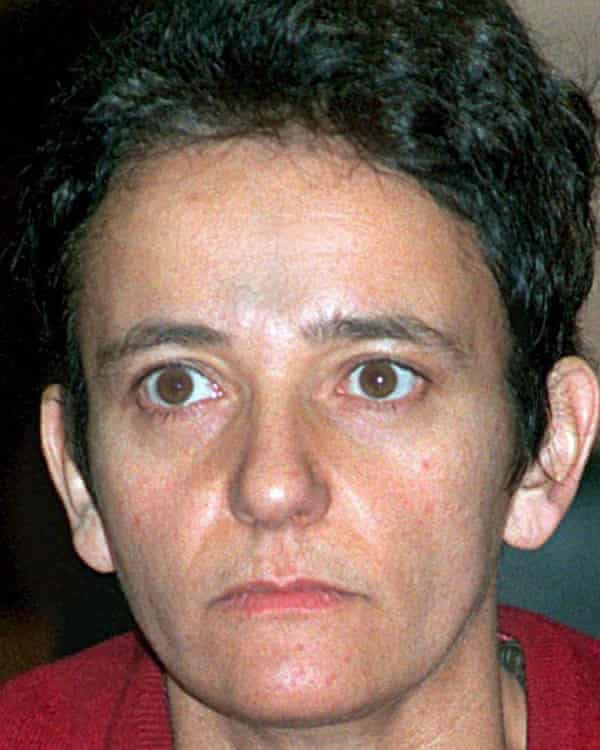A Perfect Crime: Netflix to examine Germany’s answer to JFK assassination. Click here. .
A Perfect Crime: Netflix to examine Germany’s answer to JFK assassination
Streaming giant’s first German documentary will look at case of reunification official who was shot dead at long range
Three bullets fired from a long-range rifle, a prime suspect who died before he could confess, and enough unanswered questions to spawn numerous conspiracy theories: the death in 1991 of Detlev Karsten Rohwedder had all the hallmarks to become Germany’s version of John F Kennedy’s assassination.
The murder of the Social Democrat politician tasked with overseeing the de-nationalisation of thousands of state-owned businesses after the merger of East and West Germany will attract renewed speculation from Friday with the launch of A Perfect Crime, the first German documentary commissioned by the US streaming giant Netflix.
The four-part programme reconsiders Rohwedder’s death from the views of three possible perpetrators: the Red Army Faction (RAF) terror group who claimed responsibility for the murder in a statement left behind at the scene, disgruntled former members of East Germany’s secret police, or an unspecified West German “deep state” actor using the spectre of extreme-left militants as a cover.
The series launches a week before the 30th anniversary of German reunification on 3 October, an event it portrays not as a giant rapturous party in front of the Brandenburg Gate but the advent of a much darker period, marked by rising unemployment, growing anti-government protests and the beginning of new distrust and resentment between east and west that lingers to this day.
“Modern Germany is seen as this very mature and clean country, but there are still phantom pains from very recent violence,” said the programme’s producer and co-author, Christian Beetz. “We continue to be a divided country.”
As manager of the Treuhand (Trust agency), Rohwedder oversaw a process that would lead to 94% of companies owned by the socialist state in East Germany being taken over by West German and international investors, with millions of previously secure jobs axed in the process.
With increasingly aggressive demonstrations outside the Treuhand offices in Berlin, and Helmut Kohl’s government pushing to overhaul the East German economy at breakneck speed, Rohwedder sought to leave the role in December 1990. But Kohl talked him around, former finance minister Theo Waigel recalls in the documentary.
Four months later, the 58-year-old was dead, shot through the window of the first-floor library at his home in Düsseldorf. Only the ground floor had been fitted with bullet-proof glass.
A statement left at the allotment where the sniper had taken aim claimed the crime for the Red Army Faction, also known as the Baader-Meinhof gang, at the time going through its third reincarnation following the deaths and arrests of its founding members. Criminal investigators found that the plate used to print the group’s logo matched that used on previous letters.
A hair was found at the same spot, but techniques to extract its DNA were only developed 10 years later. By then the hair’s match, RAF member Wolfgang Grams, had died in a shootout during his attempted arrest in 1993, under circumstances that remain unclear.
Alternative theories about the forces behind Rohwedder’s murder began to surface soon after, including a 1993 book by an author who would go on to publish works putting forward conspiracy theories about 9/11 and the moon landings, many claiming the RAF’s “third generation” never actually existed.
In A Perfect Crime, similar doubts are raised by a former undercover officer for Germany’s Federal Criminal police, interviewed anonymously, who is sceptical that after 1987 the RAF was able to carry out “precision attacks” such as those on Rohwedder or Deutsche Bank chairman Alfred Herrhausen, who died in a hi-tech roadside bomb attack in 1989.
Professional snipers would have been readily available from the Stasi ranks, East Germany’s recently dissolved secret police. Some ex-cadres, the documentary speculates, may have found new employment with western security firms, giving them a good insight into Rohwedder’s personal safety arrangements.
There’s a vague motive too: a month before his death, Rohwedder was rumoured to have discussed employing auditors to look into the disappearance of 800m deutschmarks previously held by the East German Socialist Unity party – though concrete proof of plans to investigate the matter has never emerged.
A Perfect Crime’s final episode is more speculative, pondering if the shooting could have been a false flag operation designed, in the words of a retired police officer with no direct involvement in the case, “to cut the ground from the feet of the Treuhand’s East German enemies” and accelerate mass privatisations.
Netflix’s first true-crime series, Making of a Murderer, was a big hit for the streaming channel but was later criticised by the prosecutor in the case of Steven Avery for omitting crucial facts that would otherwise have dampened the programme’s cliffhanger.
In the case of the Rohwedder murder, too, historians argue the case is less ambiguous than it has been portrayed as here. “The hard facts we have are clear, and they all point to this being the last murder of the Red Army Faction,” said Dirk Laabs, author of a 2012 book on the Treuhand. “The idea that Rohwedder was murdered by the Stasi, on the other hand, is only supported by rumours, not facts.”
Laabs told the Guardian: “There are crime cases with some wiggle room. But I cannot see the point of searching for that wiggle room in a documentary for the sake of it, especially in an era where conspiracy theories are rife everywhere.”
A Perfect Crime neglects to mention a crucial interview with Birgit Hogefeld, an RAF member who was arrested in the shootout where Grams died in 1993 and later sentenced to life imprisonment.
In the 1997 interview with news magazine Der Spiegel, Hogefeld stated that her terror group had deliberately targeted Rohwedder to align its cause more closely with what she called the concerns of the “legal left”.
Hogefeld dismissed the notion that the Stasi could have commissioned or carried out the murder as “nonsense”, saying the RAF discussed the very existence of conspiracy theories around the case as a “failure” on its own behalf.
The producers of A Perfect Crime told the Guardian they had approached Hogefeld and other members of the RAF’s “third generation” for an interview, but without success.






Comments
Post a Comment